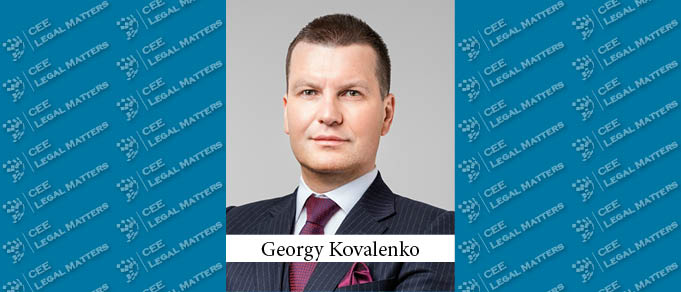Several important trends have appeared on the Russian legal market since 2014, the first year of EU/US sanctions and Russian countersanctions: 1) the growth in the market share of domestic law firms; 2) the in-sourcing of a large amount of legal work inside corporate legal departments; 3) the entrance of nonconventional players (such as banks and mobile operators) into the legal services market; and 4) the increased focus of lawyers on IT solutions and efficiency.
Before 2014, major international firms played a key role on the Russian market. After 2014, different sectors of the Russian economy started to apply a so-called “policy of import substitution,” which resulted in restrictions (both formal and informal) on the purchase of imported goods, services, and technologies. This approach dominated in the state-controlled companies that previously were major buyers of premium legal services. As a result, local legal suppliers started to receive preferential treatment. At the same time, some significant clients of international law firms were included on sanction lists, which made it difficult to work for them on a wide range of topics.
In addition, the Russian economy slowed, in part because of tensions between Russia and the West. Businesses are now much more concerned about the fees they are paying to external advisors than they were before. These developments provided a significant advantage to Russian firms, which were traditionally both cheaper and less concerned about serving sanctioned clients. By hiring top lawyers from international firms and creating alliances with Western firms they now can successfully compete with large international firms in many areas.
When the economy is not doing great and budgets for external advisors shrink, it is natural for legal directors to create strong in-house legal departments, able to cover the majority of their enterprises’ needs. Especially when there are good candidates on the market. Large businesses are thus increasingly creating self-sufficient in-house legal departments, which engage law firms only when a need arises for either international work or assistance with very complex projects. If you talk to partners at law firms, you will hear that their major competitors are now in-house legal departments.
After creating large in-house teams, chief legal officers face the challenge of making those teams efficient and retaining key people who hate routine tasks, while at the same time dealing with increased regulatory requirements and more complex assignments. Indeed, we at EY Law regularly consult clients on legal function optimization. We analyze and improve internal processes (including by way of outsourcing or insourcing), change individual and department KPIs, and propose automation solutions.
A complex review of the legal function sometimes reveals the capability to work not only for internal but also for external clients. Legal departments can be converted from cost centers to profit-generating units. This is possible because the legal profession is not as regulated in Russia as it is in other Western countries. There is no requirement for a law firm to be owned by bar-admitted lawyers or be licensed in any other manner. Thus, Sberbank, Russian leading bank, has created Sber Legal, a law firm which works with retail clients. MTS (a leading mobile operator) has launched Norma, a solution which helps small and medium businesses create legal documents and resolve other legal tasks. Another client of ours, a major oil company, is creating a unit which uses its sector knowledge to advise small companies on regulatory matters and other legal aspects of exploring and producing oil and gas. Corporate law firms still do not view these non-conventional players as direct competitors, but small high street firms and in-house lawyers should be concerned about their future.
Russia was always famous for its IT talent, which the legal profession was eager to exploit. As a result, hundreds of LegalTech solutions have been created by internal IT departments, IT start-ups created by lawyers, and major IT developers, including legal document software, freelance lawyers’ marketplaces, legal text analysis tools, and complex ERP modules designed for the legal function. The IT transformation of a large legal department usually starts with software allowing easy production of basic legal documents. The next step is to organize the flow of internal legal assignments, create an internal knowledge base, and automate filings. In Russia, we see that even the conservative legal profession can be transformed to embrace innovation.
By Georgy Kovalenko, Partner, Head of EY Law in Russia and CIS
This Article was originally published in Issue 7.11 of the CEE Legal Matters Magazine. If you would like to receive a hard copy of the magazine, you can subscribe here.















